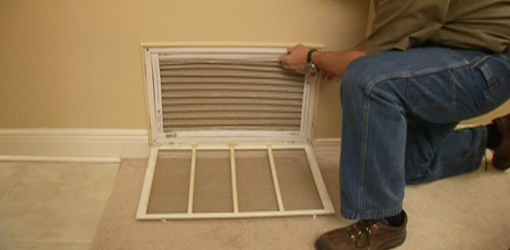Today’s air conditioners are quieter than ever. High-efficiency AC units incorporate sound-dampening technology and two-stage (variable speed) compressors to keep noise levels below 55 decibels. So if you hear unusual sounds coming from your air conditioner during normal operation, don't ignore them, as this could be a sign that the unit needs a repair or upgrade.
Ignoring the mysterious noises from your AC can turn minor issues into major expenses, as these noises could signal anything from needing a simple tune up to costly repairs, to replacement of the entire unit. The sooner you can determine the cause of the noise and resolve your AC issues, the better.
Here are some of the common sounds your HVAC system could make and what they may signify.
1. BANGING
Banging is usually a sure sign that there’s a loose or broken part — a connecting rod, piston pin or crankshaft — inside the air conditioning compressor. Or perhaps, your indoor blower is unbalanced. A banging noise may also indicate that your system needs a compressor replacement
2. CLANKING
Clanking is another sign of a loose or out-of-balance part. The parts inside the sealed unit have likely failed, and the compressor itself may have become loose, possibly requiring a replacement. This sound can also mean that the indoor blower or outdoor fan and its blades are out of balance and hitting other parts. These types of issues will only get worse and create bigger problems, if ignored.
3. CLICKING
The clicking of electrical components at start-up and shutdown is a normal part of the system’s operation, but constant or ongoing clicking is not typical. It could be a sign of a defective control or a failing thermostat. There are a lot of electrical parts in your unit, so it’s critical to pay attention to potential electrical issues as soon as possible before you have bigger issues on your hand.
4. BUZZING
- A buzzing noise from your outside unit could mean:
- Loose parts
- Debris in either the indoor or outdoor unit
- Outdoor fan motor is loose or about to fail
- Fan blades are loose or out of balance
- The copper lines from outside to inside are rubbing against something
- The condenser coil needs to be cleaned
- The air filter needs to be changed
- The blower is going bad or out of balance
- Refrigerant leaks, resulting in your air conditioning freezing up. If it’s not cooling, this could be why.
5. SQUEALING
Blower and fan noises such as squeaks, squeals and rattles may be transmitted through the duct system. Outdoor fan motors and indoor blower motors squeal loudly when they’re going bad. The blower wheel and housing will also squeal when they malfunction. For some units, this sound is normal upon start-up. You should be able to identify whether it’s a sound that the unit always makes or if it's something new.
6. HUMMING
A humming sound generally isn’t serious, but it still signals that something inside your air conditioner is off. Loose parts and refrigerant piping can cause vibration and, if left unchecked, can lead to a more serious maintenance issue. Sometimes humming or buzzing noises point to electrical problems. If the compressor hums and refuses to start, there may be an issue with the motor, though loose wiring could trigger this noise, too.
7. CHATTERING/RATTLING
A rattling noise can mean that your air conditioner is starting to deteriorate, and some of its parts are loosening. Another cause could be twigs or leaves that have clogged your system. The electrical contractor in the equipment can also make a chattering sound, which can damage other components including the compressor if allowed to continue. Another culprit could be the fan, which rattles when loose. Your first line of defense is to check for loose screws or bolts in the unit’s casing, clean condenser coils and change your indoor air filter.
8. SCREAMING
If you hear high-pitched whistling or screaming, shut the air conditioner off and call a professional right away. The most likely cause is a refrigerant leak, which not only damages your air conditioner but can also threaten your family’s health. Screaming might also indicate high internal pressure within your compressor, which is very dangerous. If your air conditioner turns off on its own, don't panic. Consider this a good thing. A sensor is doing its job to protect you from a potentially hazardous situation.
If you hear something unsettling that you believe could indicate an issue with your AC, it’s a good idea to turn off your central air conditioner unit as a precaution until it can be inspected thoroughly. Air conditioning units cost a lot to repair and replace. And while it’s never convenient to have a broken air conditioner, a yearly inspection and tune-up can prevent future problems.













